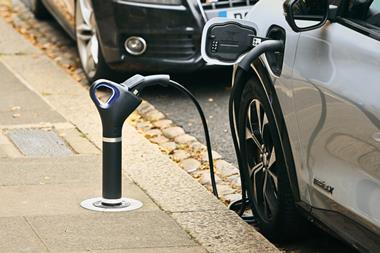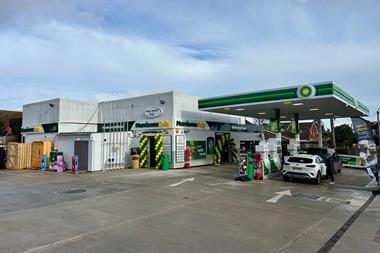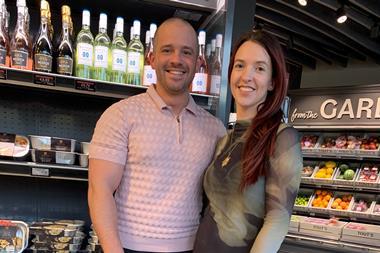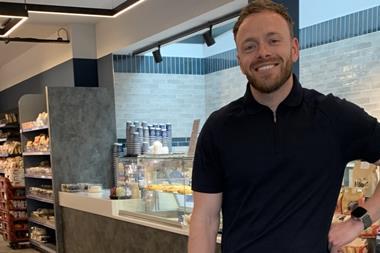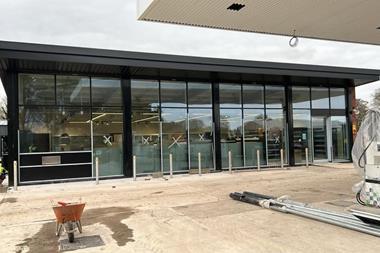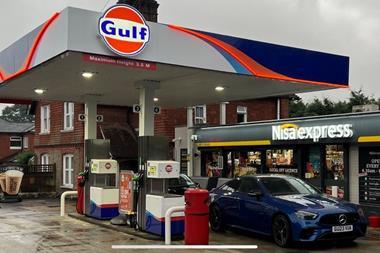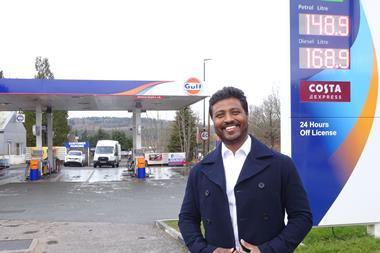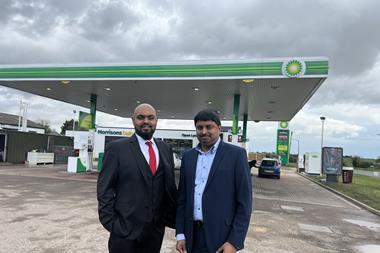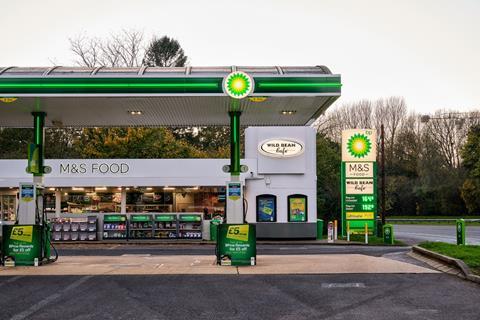
When picking up a bottle of champagne, freshly cut flowers, and a bean-to-cup coffee is cited as a key shopping mission you get an idea of what BP is trying to achieve with its estate of 1,100 UK forecourt sites, including the 313 it owns.
The over 800 remaining sites are what BP calls dealer-run, independently owned forecourts free to operate with or without any fascia and to employ their own team. These retailers remain key to the energy giant’s recruitment strategy, with their entrepreneurial spirit and access into areas where it would not make sense for BP to have its own store.
But, says BP’s vice president mobility and convenience retail in the UK, Sonya Adams, the business is highly selective on who it wants sharing its brand, as part of its move to diversify out of its historical heartlands of the south-west, London, Midlands and Scotland.
The size of those firms it recruits is immaterial. BP works with single, family run sites through to major players in the industry including MFG, EG Group, and Rontec, as well as Spar wholesaler Hendersons in Northern Ireland with which it has a “very strong partnership”.
Sonya says: “We see our dealers as critical to our business, they are strong partners for us. We are investing in the right assets, at the right locations to expand our convenience footprint. We have a brand that we are proud of, that we invest a lot in, and want to make sure that we protect.
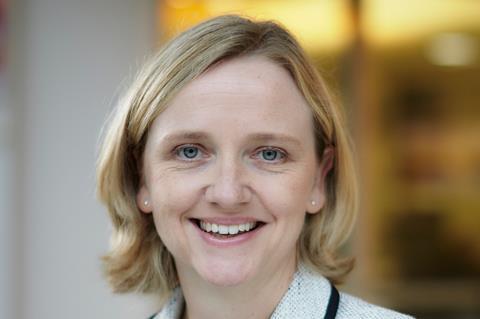
“At the end of the day we want to have the best located network for customers that gives them the most convenient experience on the roadside for energy and convenience.”
Central to BP’s quality positioning is its partnership with M&S Food. It now has 288 stores with the top end grocer – all company-owned. It is a number that BP hopes to grow. “It is a winning offer for us in the UK and it does perform very well,” says Sonya.
It is not surprising then that the brand’s iconic confectionery line, Percy Pigs, makes an appearance alongside the full convenience range at BP’s two most recent store openings in the autumn, in the West Sussex village of Faygate, and Norton-on-Derwent in North Yorkshire.
“We differentiate in customer experience,” says Sonya, who also takes pride in the network being able to make the astonishing claim that 90% of the UK population lives within a 20 minute drive of a BP forecourt.
“You want customers to feel that they get what they need when they come to you. We have a great fresh offer, we have high quality flowers, chocolates and champagne for someone on their way to see friends when travelling. We want people visiting our forecourts to energise their vehicle and themselves when they stop, and we should remember that the number one reason they do so is to use the bathroom.”
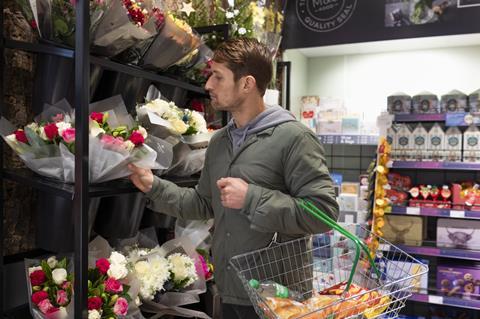
BP has also been evolving its Wild Bean Cafe offer. Currently known for its barista-made hot drinks, and popular snacks such as sausage rolls and bacon baps, it is now piloting freshly prepared, in front of customers, food for now ranges.
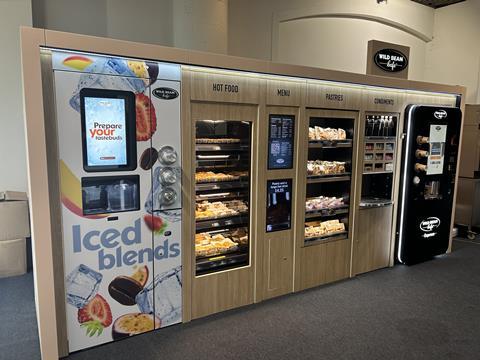
It has also started rolling out a self-serve Wild Bean Cafe Express Unit to dealer sites, aimed at sites pressed to recruit enough staff or with a high customer throughput. It takes payment and reduces queues elsewhere in the shop. It is a modular design so retailers can decide if they take the coffee, pastries and hot food elements of the machine.
Sonya says she has high hopes for the concept. “The expectation is that we roll it out to the majority of our dealer network as it is just performing really well and is actually outperforming some of our dealers’ previous coffee partners.
“It is a fully integrated offer, so you have got coffee, self-serve fresh blend juice and blended fruit drinks, pastries, fresh and hot food to go, baked on site, all fresh that day. It has one supply chain, making it quite easy for our dealers,” she says.
At the end of 2023, 38 dealer sites had this Wild Bean Cafe micromart format, and it is aiming for 100 more this year.
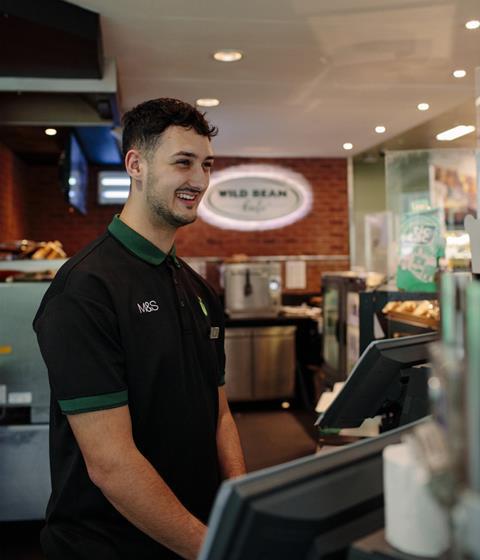
Last September BP appointed Joanne Hall as UK retail operations director, reporting to Sonya and with a brief to adopt best-in-class operations across BP’s company-owned forecourts.
Joanne brings a wealth of grocery experience from her former role as regional stores director at Sainsbury’s, and prior to that, management positions at the Co-operative Group and Lidl. BP said at the time that Joanne’s arrival was part of its wider drive to invest in its convenience retail proposition and grow its EV charging network, with customer dwell onsite set to increase from five minutes to closer to 20.
Shopper buying behaviour is already changing. Increasingly customers come to BP forecourts on food-only missions – in fact, over 50% of BP’s transactions in the UK are shop only, without any purchase of fuel. Also, with the growth in EV adoption, and customers spending longer on the forecourts, they will expect amenities such as picnic benches next to EV chargers, cash machines and InPost parcel lockers, with Faygate already taking this approach.
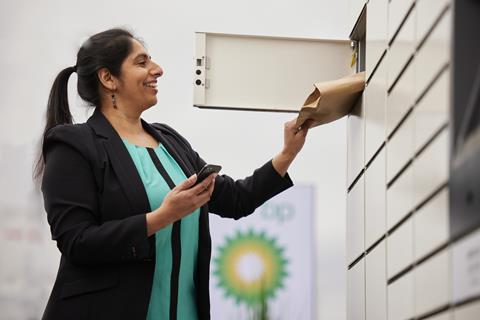
There is evidence too, says Sonya, that EV charging customers also like to use valeting services on the forecourt, with one of the most utilised car wash facilities in BP’s network being its Hammersmith site. “Car wash is still a big and important part of the business. We are looking at how we can provide access to jet wash and rollovers where they make sense,” says Sonya.
In 2022, BP announced its plans to invest £1 billion in EV charging in the UK. Its two new-to-industry sites in Faygate and Norton-on-Derwent will be equipped with BP Pulse ultra-rapid EV chargers, and Sonya says BP, M&S Food and Wild Bean Cafe is a successful trio with EV charging which the business is “building out” at company sites.
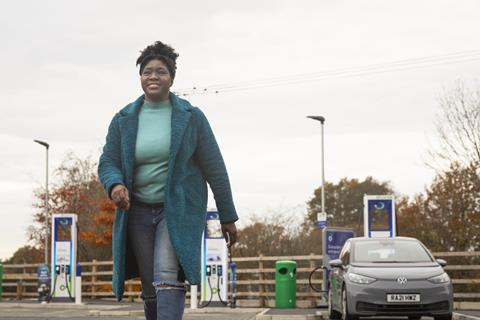
Dealer partners might be slower to come onboard with EV charging, believes Sonya. “Dealers as ever are really entrepreneurial business people, so for them sometimes investing in early stage technology does not make sense because they do not have the scale, or they can’t really position themselves to take that much risk. We are seeing as uptake of EVs continues dealers are partnering with us to bring in charging,” she says
Of course, petrol and diesel remain important for now at least, and Sonya expects hydrogen will have a role to play in helping to decarbonise heavy goods vehicles longer-term. “We don’t see hydrogen as a passenger vehicle fuel, we are not investing in that space,” she says. “For passenger vehicles EV is what we see for the foreseeable future, so we have modelled the EV uptake up to 2050. We see EV today at less than 5% of the vehicle parc, but we see that growing significantly so by 2040 it will be closer to 50%. And that is why we are backing ultra-fast charging on the go, partnered with convenience. That is a really compelling proposition.
“At the end of the day we want to have the best located network for customers that give them the most convenient experience on the roadside.”
























